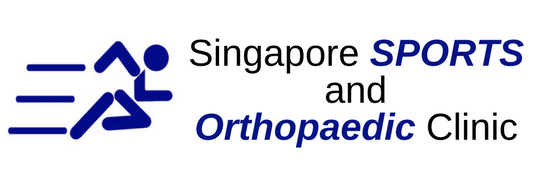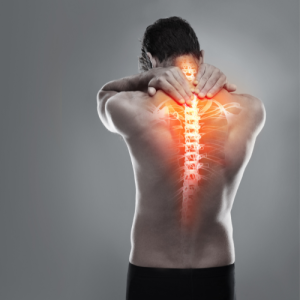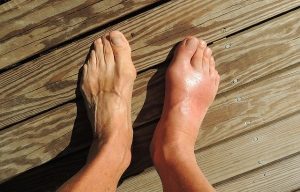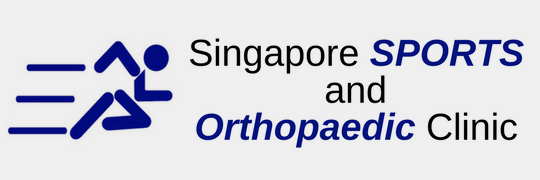Have you ever experienced nagging discomfort in your neck that won’t let you be? Neck pain is more than an inconvenience; it can impact your work, social interactions, and personal life. This is especially true for seniors, who often grapple with this issue.
Before we delve into the causes, let’s look at the neck’s anatomy. Imagine your neck as a chain of seven small bones, known as vertebrae, encapsulating your spinal cord. Muscles, ligaments, and shock-absorbing disks support these vertebrae. A harmony of flexibility and stability is achieved through this arrangement. However, any disruption in this delicate balance can lead to neck pain.

What Sparks Neck Pain in Seniors?
- Muscle Spasms and Poor Posture: Think of how often you find yourself hunching over your phone or computer. Poor posture can strain your neck muscles, causing discomfort and muscle spasms.
- Arthritis: Just like your other joints, the neck’s joints can also fall victim to arthritis. This degenerative condition may lead to pain and stiffness in the neck.
- Cervical Spondylosis: As the years go by, wear and tear become evident in your neck’s cartilage and disks. This condition, known as cervical spondylosis, can result in bone spurs and pinched nerves, culminating in neck pain.
- Cervical Spinal Stenosis: With age, the spinal canal might narrow, exerting pressure on the spinal cord and nerves. This triggers neck pain and can manifest as numbness and weakness in your extremities.
- Disk Problems: The disks between your vertebrae can also become problematic. Herniated disks, caused by damage or rupture, can impinge on nerves, leading to neck pain and discomfort.
How Neck Pain Impacts You
Neck pain isn’t just a physical annoyance; it can cast its shadow over various aspects of your life. When neck pain curtails your activities, your physical and mental well-being takes a hit. You might even encounter scepticism from others about the authenticity of your pain, leading to frustration and emotional turmoil.
Understanding the Pain Cycle
Neck pain often gets tangled in a cycle:
- Pain reduces your movement.
- Reduced movement weakens your muscles.
- Weaker muscles fatigue faster.
- Fatigued muscles contribute to heightened pain.
Diagnosing the root cause of neck pain requires a keen medical eye. Muscle strain or spasm-related neck pain can usually be identified through a physical examination. Arthritis-related pain may be unveiled through X-rays, while nerve-related symptoms might necessitate an MRI or CT scan.
Managing Muscle Pain
One of the most common culprits of neck pain is poor posture. Combat it by following these tips:
- Opt for minimal pillows to maintain proper neck alignment during sleep.
- Break up prolonged periods of sitting with movement; use a fitness tracker to remind you.
- Mind your posture while using electronic devices to avoid the dreaded “text neck.”
- Ensure your glasses prescription is up-to-date to prevent unnecessary neck strain.
- Delegate strenuous tasks that involve your arms, shoulders, and neck to avoid overexertion.
- Ease muscular pain with over-the-counter pain relievers and heat or cold therapy.
Other Causes of Neck Discomfort
Osteoarthritis often finds its way to the neck, contributing to discomfort due to wear and tear. Ageing adds complexity to the equation, giving rise to conditions like:
- Cervical Spondylosis: The neck’s structure changes can lead to pinched nerves and bone spurs.
- Cervical Spinal Stenosis: Narrowing the spinal canal can result in pressure on the spinal cord and nerves, leading to various symptoms.
- Disk Problems: Degeneration of disks can lead to herniated disks, compressing nerves and even the spinal cord.
Treatment: Nonsurgical and Surgical Avenues
When treating neck pain, the journey can take two ways:
Nonsurgical Approaches:
- Steroids
- Various injections
- Physical therapy
- Neck manipulation
- Acupuncture
- Cervical collar
- Cervical traction
Surgical Options: Surgical intervention might be considered if nonsurgical methods prove ineffective or symptoms worsen. However, this option usually requires you to be in good health to qualify.
Neck pain isn’t merely a discomfort—it’s a multifaceted challenge that can impact your life unexpectedly. Understanding the anatomy of your neck and the underlying causes of pain is the first step in effectively managing and preventing it. You can navigate the journey towards a pain-free neck and a more enjoyable life by embracing good posture habits, staying physically active, and seeking appropriate medical advice.
Are you experiencing neck and shoulder pains? Book an appointment today to have your neck pains checked by our orthopaedic specialists.









